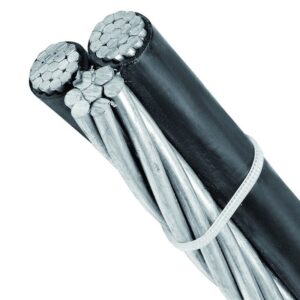History
Aluminum wiring dates back to the late 1940’s. It became most popular during the Vietnam war. Copper was in high demand for war materials, and builders needed a cheap solution to meet the growing home building demand of the 1960’s. Contractors began using aluminum as the copper was appropriated.
Cold Creep
Aluminum wiring seems to be a great substitute to copper wiring… it’s inexpensive and a great conductor. Over time it proved to be problematic. As a result, it could have complications even if connected properly.
Certainly, the biggest problem it has is what’s known as cold creep. Aluminum is a more thermally reactive conductor than copper. It expands when exposed to high temperatures and it contracts during colder temperatures (similar to how sidewalks crack and shift). Cold creep causes the wiring to eventually loosen at the wire connection. In other words, there is no longer a solid connection. Consequently, losing this contact can cause fires and electrical failures as the electricity is still actively flowing through the aluminum conductors. Additionally, cold creep can be very problematic in South Florida as during the winter months we can have nights in the 50’s or lower, and days of 80 degrees or more.
Got Aluminum?
If your property has aluminum wiring and you have questions regarding how to address the issue, please don’t hesitate to give us a call today. One of our representatives can discuss your concerns with you and/or schedule an appointment for an electrical evaluation with one of our professional electricians. If you’ve recently purchased a property with aluminum wiring, don’t panic. It doesn’t necessarily mean your entire house has to be torn apart to correct it. Believe it or not, there are many options.
If the wiring in your home is aluminum, there may be other problems. It may be cloth covered, which also should be addressed. But the best way to find out is to have a professional electrician see what your particular situation is. You’ll have peace of mind knowing your home’s electrical system – and your family – are safe.
Read more about aluminum wiring in your home here.
Disclaimer:
Great care is taken to provide accurate information on this page. However, all content is for informational purposes ONLY and should be considered as General Knowledge or even as entertainment. It should not be relied upon, as every case and/or reader is different.
ALWAYS call and check with a qualified electrician before attempting or acting upon anything you read on this site. Changes are always happening with the NEC, standards and regulations, and with State, County, and City by-laws.




